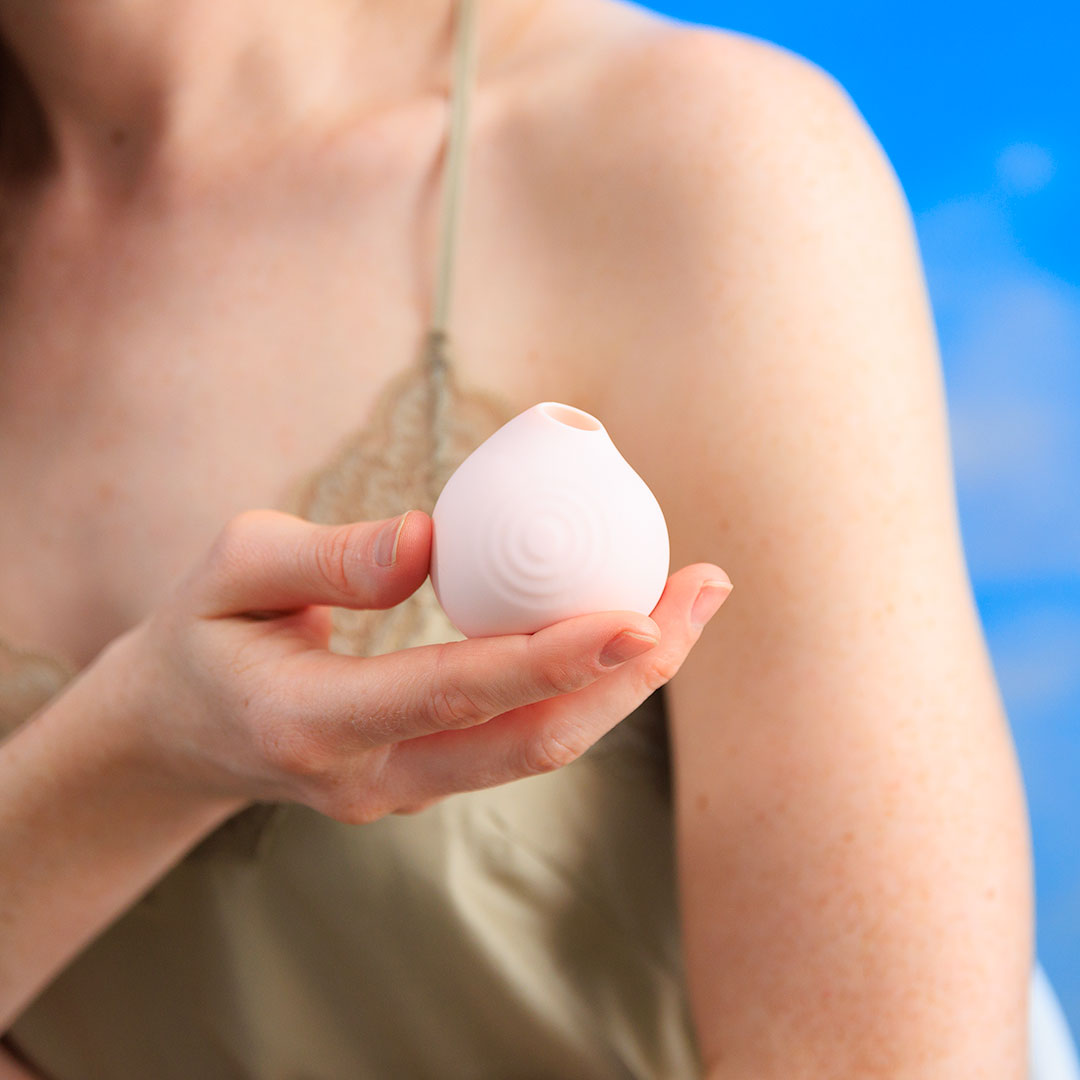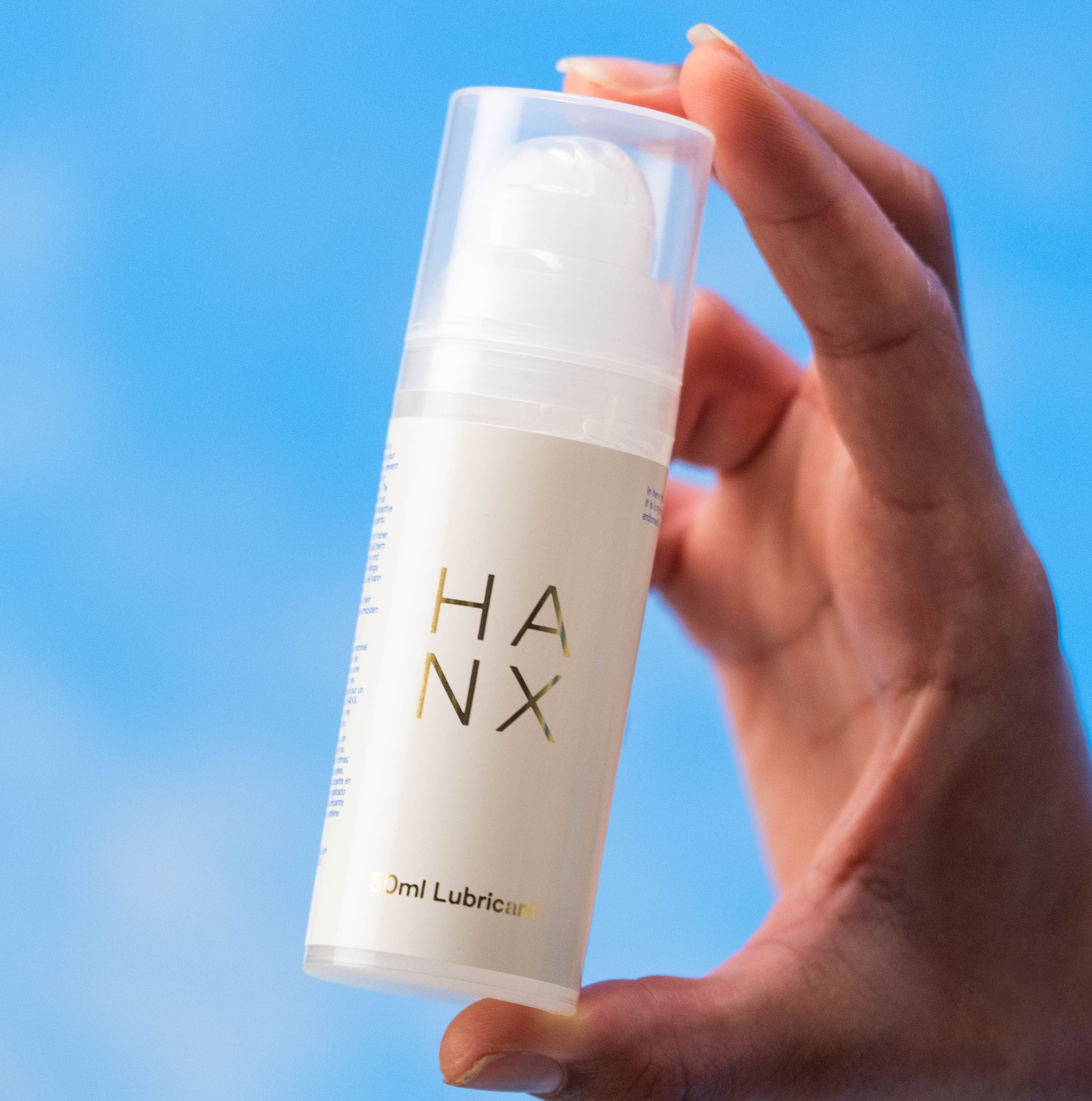Blue Monday: Meet School of Sexuality Education's Amelia Jenkinson
How was your introduction to sex education? Was it shrouded in euphemisms? Frank, no frills and a little bit frightening? For many of us, it was practically non-existent - and that needs to change.
Controversy kicked off this week when it was revealed that content creator Zoe Sugg’s site, Zoella, was dropped from AQA's GCSE syllabus over concerns that “recent content is aimed specifically at an adult audience and isn’t suitable for GCSE students”, in response to blogs written by her all female team on but not limited to, masturbation, sex toys and revenge porn.
“It worries me that they think 16 year olds aren’t exploring their own bodies, doing this with someone else or know what a sex toy is. Although we don’t aim our content at teens, I don’t think it’s a bad thing that it’s there for them to read at all & these media articles are just perpetuating the fact that female pleasure is something that we should feel ashamed of. THE VERY REASON WE WRITE ABOUT IT IN THE FIRST PLACE!”
Well said, Zoe. How we learn about sex and intimate relationships is key to self-confidence and making informed decisions down the line. Being left in limbo when it comes to consent, masturbation and using contraception correctly can have life-long effects on our physical and mental health. In fact, LGBTQ-inclusive sex and relationships education was only made compulsory in schools in September 2020. Young people need engaging resources, safe spaces for honest questions and educators with a holistic attitude to sex education as a whole.
Enter, the award-winning School of Sexuality Education (formerly known as Sexplain), which supports schools to provide age-appropriate, up-to-date and inclusive sex and relationships education programmes that are intersectional, feminist, non-binary and sex-positive. 👏 Armed with a team of ‘unembarrassable’ experts, they deliver workshops on porn, consent, healthy relationships and sexual pleasure while offering staff training, and work with university groups in the UK.
We wanted to know more about how they’re challenging taboos around sex ed, challenging body stigma and how lockdown has affected young peoples’ relationships. Read on to hear from their CEO and Co-founder, the ever-inspiring Amelia Jenkinson.
Hey Amelia, what’s giving you the blues right now?
Recently, when speaking to teachers about relationships and sex education (RSE) we’ve been hearing about the plethora of issues young people are struggling with during lockdown. Mental health, body image, relationships - the list goes on. We hope that, especially once schools reopen, we can support the much-needed recovery process.
Lockdown three is in full effect and social interaction is, for now, conducted through screens: how has this changed the way you reach young people?
We’ve been doing various virtual methods of delivery over the past 11 months. We’re delivering online classes, using platforms like Google classroom to keep developing essential learning around consent, sexual health, anatomy, identity and more during this time. When schools were open but not able to have external visitors, we live-broadcast workshops to classrooms. We’ve also created various freely available online worksheets which centre around ‘teachable moments’ from popular shows like Sex Education. They’re designed for teens to complete independently, though parents have told us they’ve used them as a resource to support home learning, too. Our aim is to keep developing young people’s critical thinking skills and knowledge of RSE topics as much as possible during this time.
Let’s talk boundaries: what issues can arise from relationships taking place in online spaces?
A key concern of ours at the moment is online sexual harassment. Pre-COVID, we conducted research alongside Professor Jessica Ringrose (UCL) and Dr Kaitlyn Regehr (University of Kent) to investigate young people’s online image sharing experiences. We found that receiving unsolicited sexual images via social media is the norm for young people. This is not a gender-neutral issue, but disproportionately impacts girls, who are also more likely to be solicited for nudes, and have intimate images shared without their consent (image-based sexual abuse).
We’re publishing a report on these findings soon, but also plan to conduct further research around how COVID-19 has impacted this issue. We anticipate that with increased screen time, instances of online harassment amongst young people will have risen further. To help schools tackle this issue, we’re developing various resources, policy and guidance documents - and we’re looking forward to getting back in the classroom to continue conversations around digital issues and consent.
The School of Sexuality Education aims to “ensure every young person has access to a complete, inclusive and comprehensive sex education.” How was your personal experience of sex ed and what impact (if any) did this have on the work you do today?
With the exception of a primary school puberty lesson and biology classes in secondary school, my personal experience of sex education was virtually non-existent. I do remember one class about parenthood, because the teacher asked me personally how long it took me to do my make-up in the morning. I remember replying something like “five or ten minutes”, to which he responded “imagine if it was three!”. I suppose he was trying to make a point about how having caring responsibilities affects your time, and decided that the idea of having less time to do my make-up would have the biggest impact on me.
Of course, this is far from the most problematic anecdote you’ll hear about sex ed classes. And on reflection, is it any wonder, given my teacher probably didn’t elect to deliver PSHE, and no doubt had to juggle teaching a subject he’d had little or no training in alongside various other responsibilities?
The issue is that my experience isn’t an anomaly. The majority of us didn’t get an inclusive and comprehensive relationships and sex education. These subjects aren’t a nice extra - they’re critical to supporting our health and wellbeing, and for building a more socially just world. This is the gap School of Sex Ed aims to address through creative, rights-based, non-judgmental workshops for young people, and training for teachers.
A lot of your work challenges common misconceptions around sex and relationships, what are some of the stigmas you tend to come across and how do you dismantle them?
Yes, much of our work centres around dismantling stigmas. This ranges from basic anatomy - challenging the idea that genitals all look the same and should naturally smell like a scented candle - to definitions of sex, including unpicking heteronormative ideas around what’s “normal” sex.
We aim to dismantle stigmas by naming them and addressing them directly. We encourage young people to think critically about why certain stigmas exist and whether the same topics are stigmatised equally in relation to all people. With a taboo subject like masturbation, we might explain that the word simply means someone touching their own body, usually the genitals, in private, in a way that feels nice for them. We’d explain that people with all types of genitals might want to masturbate, and there’s no singular way to masturbate. By taking a matter-of-fact, unembarrassable approach, our facilitators role-model a stigma-free, open attitude towards these subjects. In doing so, we can unpick taboos which have caused unnecessary confusion, anxiety and shame for too long.
How can a knowledge of relationships, health and sex education benefit your overall self-esteem?
A knowledge of relationships, health and sex education can help you to feel empowered. With fact-based, medically-accurate information you can make informed choices about your health and well-being. You know that you don’t have to sit with a worry about your health - that it’s your right to seek judgement-free, confidential advice. You know that your identity is yours to define, that aspects of it might change over time, and that’s fine. You know that diversity is something to be celebrated. You can spot harmful myths and misconceptions and know with confidence that they’re not true or problematic. You understand that it’s great to discuss likes, dislikes and boundaries, and doing so helps you build positive relationships.
Relationships, sex, sexuality and health: these make up a huge proportion of our lives as human beings and yet have been afforded little or no time in our education. The impact of closing this gap could be truly transformative for all of us.
Finally, what’s bringing you hope?
We’ve recently launched a Youth Advisory Panel. We were amazed to receive applications from across the globe, and we now have a fantastic group of completely inspirational youth advisors. Their passion for improving relationships and sexuality education and commitment to bringing about positive change is bringing me hope right now - they are the future!
What To Do Next:
-
Learn more about the School of Sexuality Education’s work here.
-
Elevate your feed and follow their colourful, enlightening IG now.
-
Say it with us: resources! You can help make sex-positive and LGBTQIA+ inclusive workshops accessible for all young people, regardless of which school they attend of where in the UK they live. Donate here.

We’re proud to be a partner of the School of Sexuality Education. If you’re a school looking for workshops or training, working in the sexual health and education field, or just want to say “you’re amazing!”, contact them here.






















